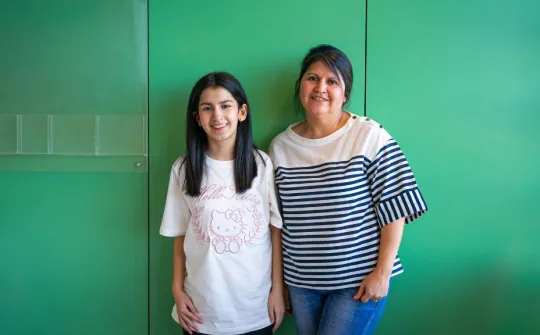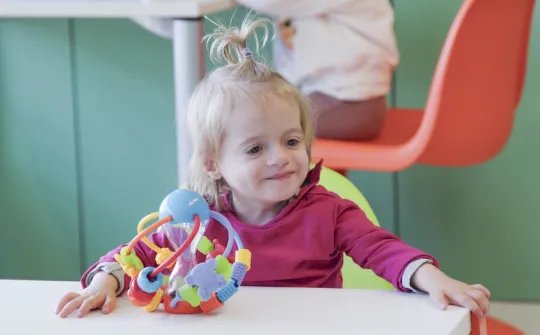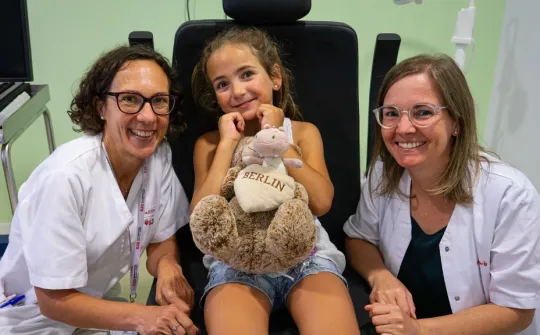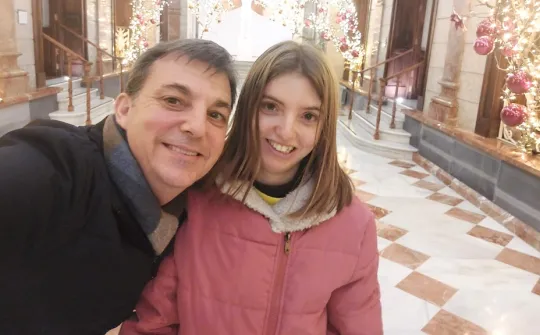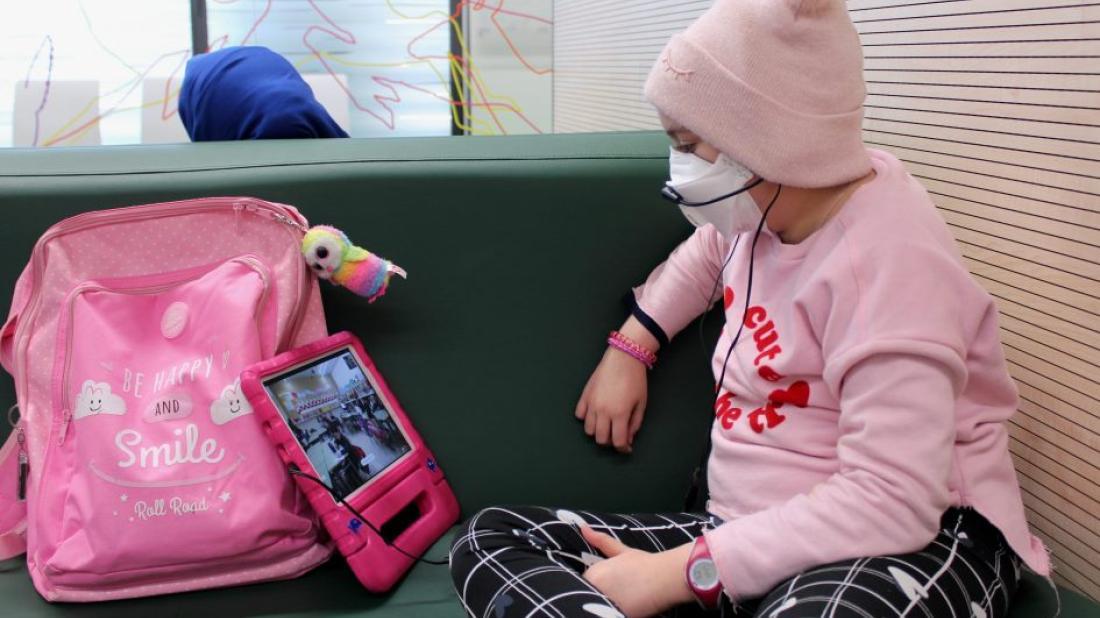
Learn about the story of a patient at the SJD Barcelona Children’s Hospital who, despite having lymphoblastic leukaemia, managed to stay on at her school for more than one year.
Judit is 8 years old and was diagnosed with childhood acute lymphoblastic leukaemia in July 2017. In a matter of weeks, her disease progressed from medium- to high-risk, for which she had to begin a chemotherapy treatment supervised by the SJD Barcelona Children’s Hospital’s Oncology and Haematology team. Chemotherapy is one of the normal treatments for paediatric leukaemia patients, although nowadays there are also other treatment options. The therapy, which was generally given at the Day Hospital, meant that the patient had to leave her school in Puig-Reig and temporarily move to her aunt’s house in Barcelona to be close to the hospital.
One of Judit’s main concerns when the whole process began was that she would not be able to go to school and would be missing out on her education while also being separated from her classmates. Ana, her mother, who is also a teacher, was mainly worried about her daughter’s health, although she understood her child’s concerns for wanting to continue with her normal routine.
"In September 2017, when she started going to school, we went to talk with her tutor, who came up with the idea of making brief Skype calls using our phone or tablet", explains the patient’s mother. "Judit started a fairly aggressive chemotherapy cycle, and despite feeling rough from time to time, connecting with the class always served as something of a distraction for her. There were only a few fays where she felt really bad and took a short break", remembers Ana. The drug cycles allowed her to feel progressively better.
Participating in the classroom from hospital
After the first few brief connections using the classroom’s computer, the Parents' Association decided to install a camera in the ceiling, allowing Judit to see the entire class, plus a projector so that her classmates could also see her. The school subsequently started to use a tripod camera that could be moved around the classroom. This allowed her to see the whiteboard, move virtually around the classroom and participate in group activities.
During treatment, Judit eventually needing 7 relatively long (at least two weeks) periods of hospitalisation. However, the online connections allowed her to keep up to date with her education and to stay in touch with her friends. The patient connected with the school when she was admitted to hospital, when she was receiving treatment in the Day Hospital and when she was at her aunt’s in Barcelona.
The Alfred Mata School considered the site as an opportunity to work on a cancer project, touching on all the related aspects: health, the use of technology, participation in supportive activities and the economy (selling Candela bracelets or holding a "hot chocolate gathering", for example). The in-hospital teachers of the La Magnolia Hospital School provided support to the initiative from the outset and monitored the patient, who sat exams remotely and participated in virtually all the school activities. This education plan won the 2017 Baldiri Reixach education prize, being considered an innovative initiative that has inspired new projects. It also generated interest in the media and was covered in news articles in the printed press and was also featured on television in Catalonia.
Getting back to attendance-based classes
In November, Judit started to receive maintenance chemotherapy for her leukaemia, as her condition had progressively improved. She still has to go to hospital for check-ups, treatment and follow-up, but her physicians now feel that the patient can go back to school with relative normality. 19 November was her first day back after many months, and her classmates held a welcome-back party for her. Her first classes only lasted a few hours, but now the student-patient can remain at school all day.
"Judit hasn’t needed to adapt to her return to school since, despite her disease, she never really left it", explained her mother. Even when her hair started to fall out because of the disease, all the children saw it happen progressively – it was not something strange or shocking. They have all learnt about leukaemia from Judit, and while Judit will continue to receive maintenance treatment for a further school year, she will be able to continue learning alongside her classmates, both inside and outside the classroom.
